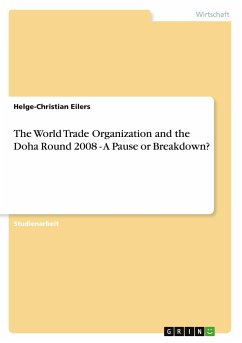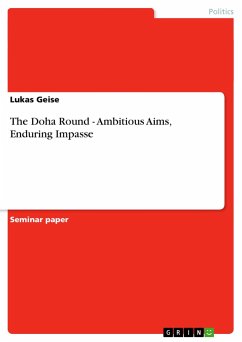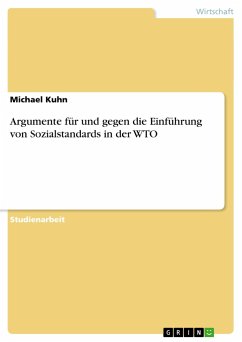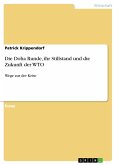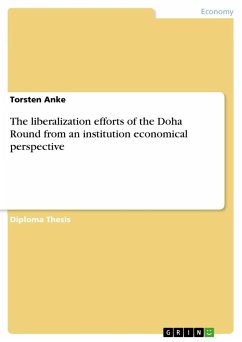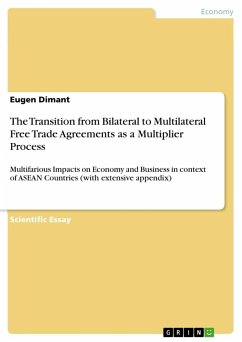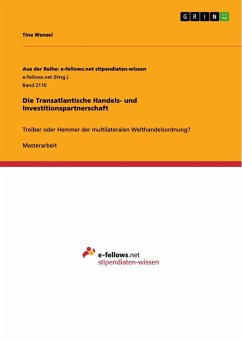Studienarbeit aus dem Jahr 2010 im Fachbereich BWL - Wirtschaftspolitik, Note: A, Heriot-Watt-University Edinburgh, Sprache: Deutsch, Abstract: Nowadays, our economy is signed by the impacts of the globalization which has led to a closer integration of markets around the world. Countries and their companies are taking advantage of foreign markets and their availability of resources in order to improve their performance. However, the ability to do so is the result of multilateral trade negotiations after World War II. In 1947, negotiations of General Agreements on Tariffs and Trade (GATT) took place for the first time in order to promote and improve international trade. In particular it focused on reducing the three mayor barriers to trade, tariffs, exports subsidies and domestic support (Tantia 2009). After 1947 eight rounds of negotiations have been held. By the fact that developed and developing countries were frightened that GATT could benefit the other more than them, consequently each of the following rounds has failed.In 1995 GATT has been replaced by the World Trade Organisation (WTO) which highlighted that progress could be achieved through the enhanced integration of developing countries into the world economy (Busse 2003).This assignment is going to analyse the various trade rounds held after the formation of GATT and the Doha Round and why they have failed continuously. Furthermore, it will be discussed how the Doha Round could make consensus and what steps are needed to achieve consensus.
Hinweis: Dieser Artikel kann nur an eine deutsche Lieferadresse ausgeliefert werden.
Hinweis: Dieser Artikel kann nur an eine deutsche Lieferadresse ausgeliefert werden.

